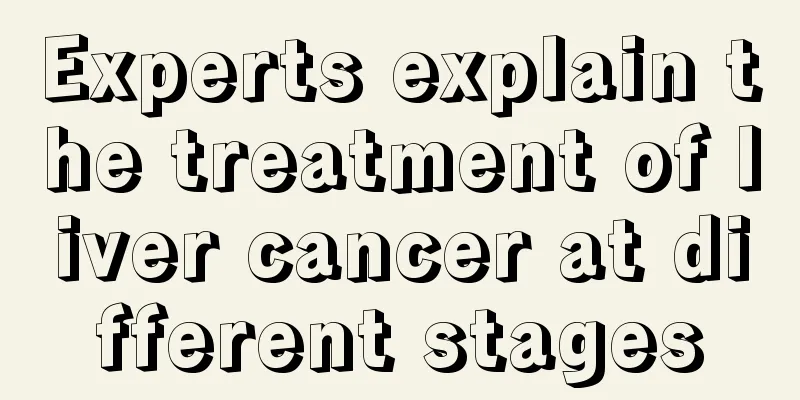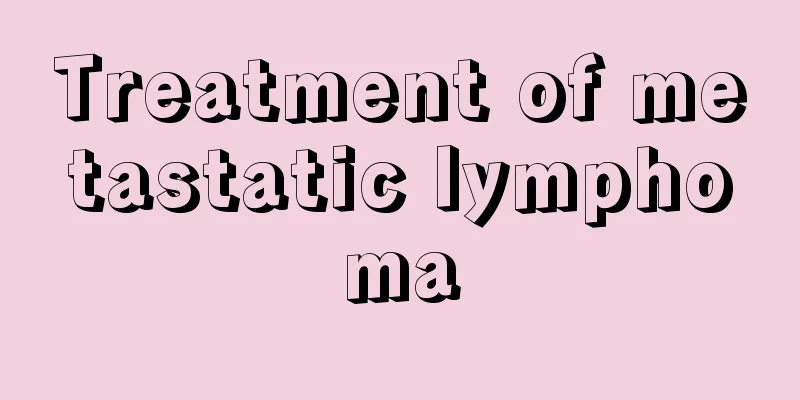If a woman's hair falls out here, it can be fatal

|
Introduction: The human body needs iron to help produce red blood cells to carry oxygen throughout the body. Iron deficiency can lead to anemia, which results in a decrease in red blood cells and a decrease in the amount of blood oxygen reaching the scalp.
1. Anemia Experts say that iron supplementation can help improve symptoms of anemia. Lack of vitamin C, intake of caffeine or alcoholic beverages are not conducive to iron absorption. It is recommended to drink juice and eat iron-rich foods to restore hair growth. 2. Eating disorders Reducing food intake will lead to a decrease in blood flow to the scalp, which in turn affects the normal growth of hair. In severe cases, it can cause hair to lose its luster or even fall out. Experts say hair loss is rarely permanent, but eating a balanced diet and consuming plenty of protein is key to preventing it. Hair is made of protein, and when hair follicle protein is at its lowest, it is particularly important to consume more protein (especially breakfast). In addition, the diet should be rich in vitamins (especially B vitamins), zinc and important fatty acids. 3. Polycystic ovary syndrome
Polycystic ovary syndrome in women is caused by excessive levels of male hormones, and patients will experience symptoms of thinning hair on the forehead and top of the head. This situation mostly occurs in patients with a family history of hair loss. Experts say that patients lose hair on their heads, but hair on their faces and bodies grows wildly. Medications that lower male hormones and scalp massages to promote blood flow can help patients regrow their hair. 4. Thyroid disease The first symptom of thyroid dysfunction is hair loss. Too much or too little thyroid hormone can affect metabolism and normal hair growth. Since all hair follicles are affected, hair loss is not a localized phenomenon. Experts say medications and other treatments can help alleviate the condition. In order to restore your hair to its original state, it is best to consume more protein and do a head massage every morning. 5. Stress syndrome Stress can cause premature graying of hair. When under stress, the human body releases a variety of hormones that will affect the absorption of B vitamins and affect hair pigmentation. Stress syndrome can lead to alopecia - the body's immune system mistakenly attacks scalp cells, causing large clumps of hair to fall out. Mental relaxation and taking vitamin B complex can improve the problem of premature gray hair. |
<<: 7 bad habits that can easily lead to endocrine disorders. See how many of them you have.
>>: What to do if your skin is dry
Recommend
Can the flocculent part in the middle of wax apple be eaten?
Wax apple is a fruit mainly distributed in Taiwan...
What to do if you have a sudden myocardial infarction
Maybe in our daily life, we will encounter someon...
Does drinking glucose after drinking alcohol work?
Some people will feel very uncomfortable after ge...
The efficacy and function of yellow agate
Nowadays, more and more people like to wear some ...
What can you eat to prevent liver cancer? Eating more three kinds of bamboo shoots can effectively prevent liver cancer.
Many of us hope to be healthy, but sometimes due ...
What does gastric retention mean
Gastric retention actually refers to the accumula...
How to prevent hypoxia due to cardiovascular and cerebrovascular diseases
With the increasing incidence of cardiovascular a...
What is the best way to treat a long-lasting cough?
Long-term coughing has a great impact on patients...
What medicine is good for tongue cancer?
What medicine is good for tongue cancer? Although...
Can nasopharyngeal cancer cause facial paralysis?
Can nasopharyngeal cancer cause facial paralysis?...
How to use an electric pressure cooker
In our lives, there are various kitchen utensils,...
What are the dangers of strong tea
China's tea culture has a long history. The h...
Can nasopharyngeal cancer cause swollen gums?
Nasopharyngeal carcinoma can also cause swollen g...
How many times is intervention usually performed for liver cancer? It depends on the condition of the patient
Liver cancer can be cured early. In terms of trea...
General overview of thyroid cancer
Nowadays, many people attach great importance to ...









